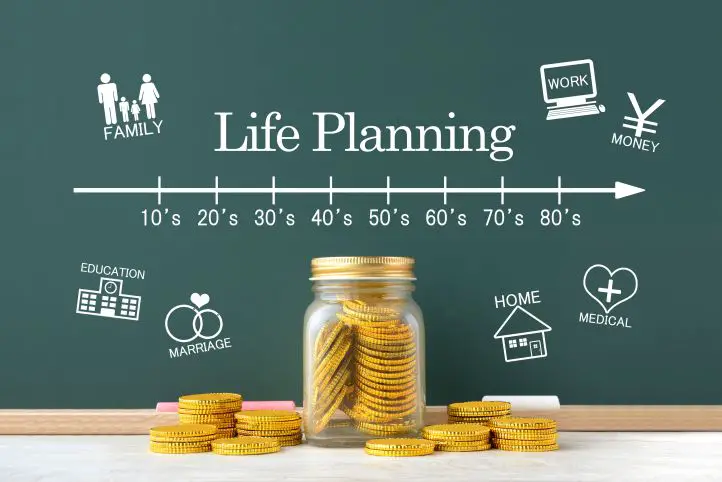
CommonCentsMom.com is advertiser-supported: we may earn compensation from the products and offers mentioned in this article. However, any expressed opinions are our own and aren't influenced by compensation. The contents of the CommonCentsMom.com website, such as text, graphics, images, and other material contained on this site (“Content”) are for informational purposes only. The Content is not intended to be a substitute for professional financial or legal advice. Always seek the advice of your Financial Advisor, CPA and Lawyer with any questions you may have regarding your situation. Never disregard professional advice or delay in seeking it because of something you have read on this website!
Your personal financial plan is an essential element of your life. This means that you need to have a clear understanding of how you want to spend your money, and you need to be sure that you can afford it.
By doing this, you will be able to create a long-term plan for your money, so that it serves as a source of security and stability in your life. Your personal financial plan is also an important tool for achieving your goals in life. It should provide the support that you need to pursue your dreams and aspirations
In order to develop this type of plan, it is necessary to take into account many different aspects of your life. You will want to consider the following:
1) The type of lifestyle that you want in the future
2) The types of goals that you want to achieve
3) Your current financial situation
4) Your long-term goals for retirement and investment
Your personal financial plan should also take into account your specific situation. This means that you will need to understand the financial risks that you face, and you will need to identify the financial goals that are most important to you.
You will also want to create a plan for how you can use your money to achieve these goals. Once you have created this type of plan, it is essential that you implement it in order to ensure that it works for you.
This means that you will need to determine how much money each month needs to be allocated towards achieving your financial goals. In addition, it is important that this money is invested in a way that helps achieve these goals over time.
This type of plan should also help prevent problems in the future, by making sure that all of your money is used effectively. It should also make sure that the decisions are made with complete knowledge of all of the options available, so that there are no surprises later on down the road.
Your personal financial plan should not be designed with any single goal in mind; instead, it should be designed with an eye towards meeting all of your long-term goals and aspirations over time.

Understanding The Elements Of Your Personal Financial Plan
For many people, financial planning is a confusing topic. There are lots of ways to go about it and you can do it yourself or have a professional do it for you. The approach you take depends on your personality and needs.
You can choose to learn about investing and other financial topics, but the most important thing is to start by thinking about what matters most to you.
What are your goals? What are your fears? Then write down the steps that will help you reach those goals. For example, if your goal is to be debt free, then you will need to create a plan for getting there and stick with it until you achieve that goal.
Don’t get discouraged if it takes time; with persistence, anything is possible!
Key elements of your personal financial plan includes:
Your Basic Needs: They include food, shelter, clothing, transportation and healthcare (both medical care and prescription drugs).
To understand how much money you need for these items, consider the amount of money that would be needed in an emergency (an unexpected expense) plus two weeks of expenses in case of unemployment or another emergency situation.
Your basic needs may be more or less than the amount of money you have available to you.
There are many different ways to calculate your basic needs and you can use one that is comfortable for you. The amount of money needed will depend on your lifestyle, your location and the cost of living in your area.
For example, if you live in a major city where the cost of living is high, then you may need more money than someone who lives in a small town where the cost of living is low.
Your Lifetime Income: Your lifetime income consists of the following four elements:
- a) Income from sources such as investments, stocks, bonds and real estate
- b) income from investments such as annuities and pension plans
- c) retirement savings such as 401k plans and IRAs
- d) Social Security
- e) government assistance such as food stamps, public housing or welfare programs.
In addition to this basic income there are other sources that can be added on to it including other sources of income from rental properties or other sources (such as a job or inheritance).
Some people have very little income from these sources while others have significant amounts. This is because the way you create your plan depends on what your needs are and how much money you have available to you.
The first step in creating your personal financial plan is to list the basic needs that are important to you and think about what those needs would be if there were no financial constraints (if there were no limits on how much money was available).
Once those basic needs have been determined, then think about what additional expenses might occur over time and make a list of those items that could be added to your basic needs (this will include non-essential items such as vacations, new cars or luxury items).
Next, figure out how much money you need to live comfortably and comfortably pay for the additional expenses that you have listed. This will give you a rough estimate of how much money you will need over your lifetime.
Now that you have this rough estimate, then take a look at the information that is available to you about investing and creating a personal financial plan. You can use this information to create a plan for yourself or use it as a starting point for talking with someone who can help you develop your plan.
Final Thoughts
Your personal financial plan is an essential element of your life. This means that you need to have a clear understanding of how you want to spend your money, and you need to be sure that you can afford it.
By doing this, you will be able to create a long-term plan for your money, so that it serves as a source of security and stability in your life.
Your personal financial plan is also an important tool for achieving your goals in life. It should provide the support that you need to pursue your dreams and aspirations.







